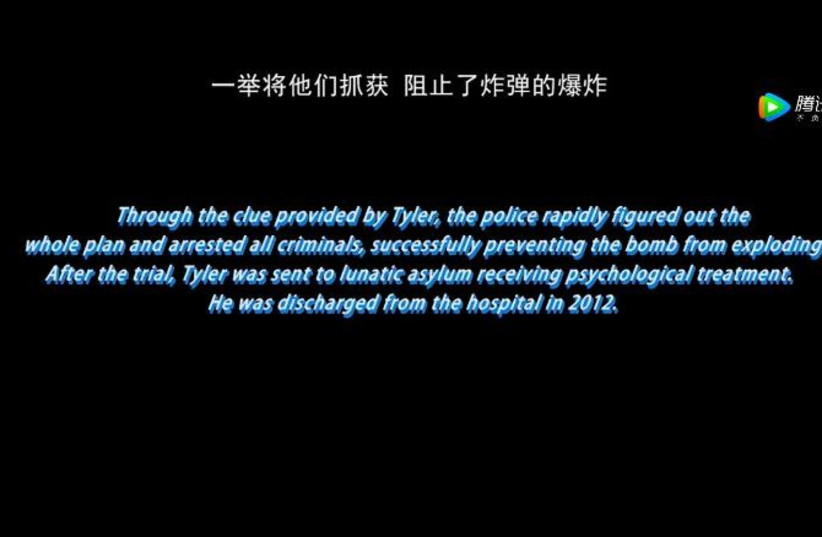The renowned classic film Fight Club appears to have been censored on popular Chinese entertainment platform Tencent Video – though rather than merely cutting scenes from the film, government censors created a whole new ending in place of the cult movie’s iconic conclusion.
The ending, which (spoiler alert) originally saw the protagonist destroy the office towers of the financial institutions integral to the global economy, was replaced by a message with an English translation that read: “Through the clue provided by Tyler, the police rapidly figured out the whole plan and arrested all criminals, successfully preventing the bomb from exploding. After the trial, Tyler was sent to [a] lunatic asylum receiving psychological treatment. He was discharged from the hospital in 2012.”
Chinese netizens (citizens of the Internet) took to Douban, a forum website similar to Reddit and IMDb, to complain about the stark change in David Fincher’s 1999 Thriller/Drama. Recent reviews on Douban’s Fight Club page share viewer’s disdain, such as one commenter who wrote “Ironically, today happens to see the film's ending intentionally doctored. The original ending is crazy and poetic enough.”
"No one wants to pay money to watch a classic that has been so ruined to such an extent," another wrote, while several Douban users spammed the comments with messages spoiling the original anarchistic ending.

Film censorship in China is systematic, as the government only allows a few dozen foreign films to be broadcast domestically every year. 2019's Freddie Mercury biopic "Bohemian Rhapsody," for example, was cut to remove any mention of the Queen singer's sexuality and AIDS diagnosis.
Censorship of media, press and other mediums is quite common around the world, though China’s “Great Firewall” – which has left it among the only countries that censor popular websites Google, Facebook, Twitter and others – have made the People’s Republic particularly known for its stringent censorship.
Despite the infamous censorship, VPN (Virtual Private Network) usage is an open secret in China, as it allows Chinese residents to bypass China’s censorship apparatus and gain access to foreign websites and apps.
The Chinese Government’s Propaganda Department is responsible for media censorship online. Censorship in China ranges from deleting content the government deems unfit for public consumption to monitoring the messages of citizens to ensure they do not discuss sensitive information.
